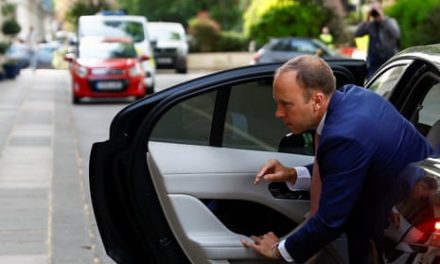Almost £200bn of tax reliefs handed to businesses and individuals each year should come under greater government scrutiny to prevent fraud and abuse, according to an all-party group of MPs.
The Treasury committee said in a report published on Wednesday that “a systematic review” into more than 1,000 tax reliefs was needed after MPs found HM Revenue and Customs did not have the resources to monitor how tax breaks and deductions were used.
Harriett Baldwin, a Tory MP and the chair of the committee, said the tax system had become “too complicated” and HMRC needed to work with the Treasury “to get a grip on the complexity, lack of transparency and potential for abuse”.
Tax reliefs reduce the amount of tax an individual or company pays, usually to encourage a change in behaviour, such as by promoting investment in particular sectors.
High-profile tax breaks cited in the report included £27.8bn spent encouraging pension saving and £27bn subsidising occupational pension schemes. A reduction in VAT on the construction and sale of new homes cost £16.9bn.
Anti-poverty campaigners have argued that tax reliefs only benefit those who pay tax, meaning low earners miss out on government support.
Tax relief on retirement saving mostly benefits higher-rate taxpayers who have the spare income to put aside in a pension scheme.
According to the Institute for Fiscal Studies, in 1991-92 just 3.5% of UK adults paid the 40% rate of income tax. By 2022-23, 11% were paying higher rates, and that figure is expected to reach 14% by 2027-28, increasing the level of tax relief the government sets aside on pension saving.
During its inquiry, the committee heard there were more than 1,180 tax reliefs in operation in the last financial year, with only 365 having official costings.
While the overall cost is unknown, the committee said, HMRC analysis found that 105 of the 1,180 reliefs cost £195bn.
after newsletter promotion
Other reliefs, such as the £12,570-a-year personal allowance individuals receive before paying income tax, are considered structural or integrated aspects of the tax system. The top five structural tax reliefs, including inheritance tax relief and capital allowances for business, cost an additional £254bn.
Baldwin said: “While some reliefs are very effective, others are prone to abuse or simply lie dormant, cluttering the ever-expanding tax code. The fact we only have costings for a third of reliefs is staggering – and something which needs rectifying with urgency.
The committee said the disparity between the scrutiny of tax reliefs and direct public expenditure was “stark” and recommended reliefs be reclassified as government spending.
“The government should consider how individual departments can take more responsibility for budgeting reliefs to increase ministerial accountability and oversight,” the report said.
The MPs also recommended the government agree five-yearly reviews of tax reliefs and to remove reliefs that “no longer achieve policy objectives, are vulnerable to abuse or cost significantly more than expected”.
Join the exciting world of cryptocurrency trading with ByBit! As a new trader, you can benefit from a $10 bonus and up to $1,000 in rewards when you register using our referral link. With ByBit’s user-friendly platform and advanced trading tools, you can take advantage of cryptocurrency volatility and potentially make significant profits. Don’t miss this opportunity – sign up now and start trading!






Recent Comments